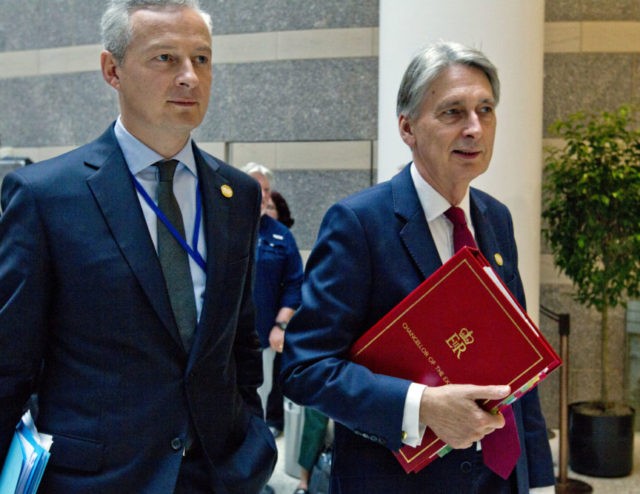WASHINGTON (AP) — The leaders of the International Monetary Fund and World Bank are vowing to fight climate change, combat income inequality and push back against rising populist skepticism over free trade and international collaboration.
“We know from experience that international cooperation works — from reconstruction after World War II more than 70 years ago to fighting Ebola just a few years back,” IMF Managing Director Christine Lagarde told delegates representing many of the IMF’s 189 member countries.
The IMF and World Bank wrap up three days of meetings Saturday. Finance ministers from the G-20 major economies concluded two days of talks on Friday.
The global economic integration that the IMF, World Bank and G-20 represent is under siege. The British, unhappy with an influx of immigrants, voted to leave the European Union last year. The Americans sent Donald Trump to the White House on a promise to tear up bad trade deals and put America first. And nationalist parties gained strength in German elections last month.
But German Finance Minister Wolfgang Schaeuble said Friday that the populist discontent was misplaced. The IMF predicts the global economy will grow this year at the fastest pace since 2010. “We see that things are not as bad as predicted,” said Schaeuble, who is serving as the G-20 leader because Germany holds the group’s rotating chairmanship this year.
The IMF’s Lagarde warned that world leaders must take advantage of healthy growth to devise policies that make sure prosperity reaches those who are being left behind. She said “excessive inequality … hinders growth, erodes trust and fuels political tensions.”
“It often feels like our increasingly interconnected world is in fact falling apart and countries and peoples are pulling away from each other,” World Bank President Jim Yong Kim said in his address to the annual meetings Friday.
Kim said it should be understood that the IMF and the World Bank both represented a “part of the post-1945 world order that was predicated on the notion that what affects one city, one country, one region can have immediate and lasting impacts on us all.”
Kim and Lagarde also called for world leaders to do more to fight climate change. “When it comes to climate change, we’re out of time — 2016 was once again the hottest year since record-keeping began,” Kim said. “We have to reduce our carbon footprint and help countries adapt to natural disasters like the recent hurricanes in the Caribbean and devastating floods in South Asia.”
Behind the scenes, the United States found itself at odds on some major issues confronting the two multilateral lending institutions.
The Trump administration is balking at the current outlines of a World Bank request for more money to finance their lending programs.
A senior U.S. Treasury Department official previewing the meetings earlier this week told reporters the bank needs to provide financing “to countries that need it” instead of continuing to lend heavily to China, the world’s second-biggest economy. On Friday, Kim warned that without more funding the bank may be forced to slash its main lending program by a third.
But Treasury Secretary Steven Mnuchin said Friday that “more capital is not the solution when existing capital is not allocated effectively.”

COMMENTS
Please let us know if you're having issues with commenting.